- Laboratory >
- Laboratory medicine >
- Reagent >
- Fujirebio
Fujirebio reagents
{{product.productLabel}} {{product.model}}
{{#if product.featureValues}}{{product.productPrice.formattedPrice}} {{#if product.productPrice.priceType === "PRICE_RANGE" }} - {{product.productPrice.formattedPriceMax}} {{/if}}
{{#each product.specData:i}}
{{name}}: {{value}}
{{#i!=(product.specData.length-1)}}
{{/end}}
{{/each}}
{{{product.idpText}}}
{{product.productLabel}} {{product.model}}
{{#if product.featureValues}}{{product.productPrice.formattedPrice}} {{#if product.productPrice.priceType === "PRICE_RANGE" }} - {{product.productPrice.formattedPriceMax}} {{/if}}
{{#each product.specData:i}}
{{name}}: {{value}}
{{#i!=(product.specData.length-1)}}
{{/end}}
{{/each}}
{{{product.idpText}}}
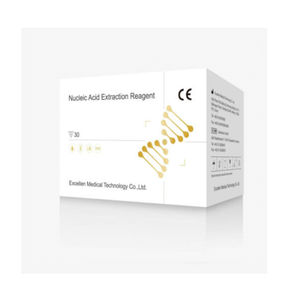

DNA extraction, purification and sulfite conversion Automatic instrument DNA extraction kit Oncology Diagnostics Early Cancer Diagnostics Automatic instrument
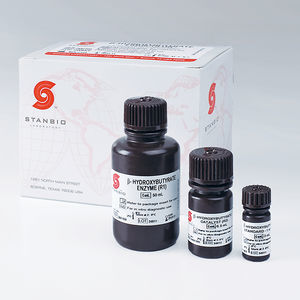
... Industry Leading Performance Made in the United States The Stanbi Chemistry LiquiColor® Beta-Hydroxybutyrate (B-HB) reagent is a vital tool for detecting ketones and monitoring patient resolution in cases of diabetic ...
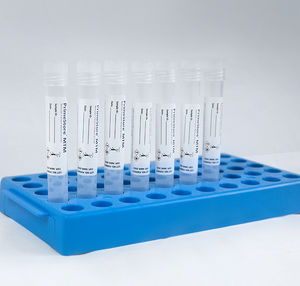
PrimeStore® MTM is a molecular transport medium that preserves and stabilizes DNA and RNA, giving the user a “snapshot” in time for that sample. PrimeStore® MTM was designed and optimized for molecular testing, allowing pathogenic ...

Storage temperature: 2 °C - 8 °C
"A dedicated Glutathione Peroxidase control for use in the routine monitoring of the Randox Ransel assay on clinical chemistry analysers. Features & Benefits Lyophilised for enhanced stability Bovine based serum Reconstituted ...
Randox Laboratories
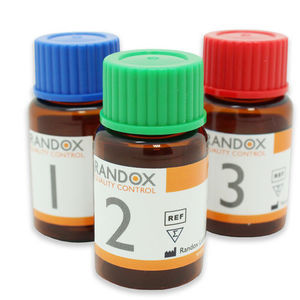
Storage temperature: 2 °C - 25 °C
"Dedicated control for use in the routine monitoring of the Randox Total Antioxidant Status assay on clinical chemistry analysers Features & Benefits Lyophilised for enhanced stability Bovine based serum Analytes Total ...
Randox Laboratories
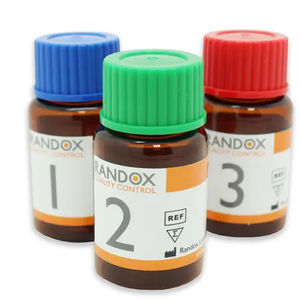
Storage temperature: 2 °C - 25 °C
A dedicated Glutathione Peroxidase calibrator designed specifically for use with the Randox Glutathione Peroxidase assay on a wide range of clinical analysers. Features & Benefits Lyophilised for enhanced stability Bovine based whole blood
Randox Laboratories

α-Fetoprotein (AFP), the foetal equivalent to albumin, is a 67 kDa glycoprotein produced during embryonic development and found in high concentrations in foetal serum and amniotic fluid. In normal nonpregnant adults, AFP is present in ...
Fujirebio

The CA125 monoclonal antibodies recognize epitopes in the protein core of the CA125 antigen. These monoclonal antibodies show high specificity for ovarian cancer, and can be used for development of fast and sensitive homologous or heterologous ...
Fujirebio
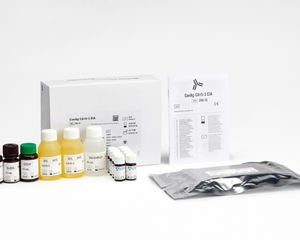
The MUC 1 antigen is a membrane-anchored, mucin-type glycoprotein present in malignant and normal epithelial cells of certain organs (ie, breast, lung, ovary, pancreas, and colon)1. The apoprotein of the MUC 1 mucin contains a transmembrane ...
Fujirebio
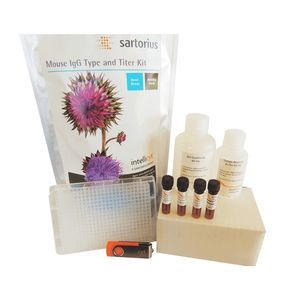
Validated iQue® Cell and Bead-Based Kits allow you to get actionable data from less sample, all in a fraction of the time of conventional assays. These unique competition assay kits are no-wash, no-dilution to provide a streamlined workflow ...
Sartorius Group
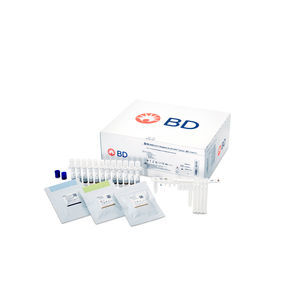
The BD MAX™ system offers you an efficient path to improved clinical outcomes by combining and automating extraction and thermocycling into a single platform capable of running both FDA-cleared and open system assays. Flexibility and ...

Storage temperature: 2 °C - 8 °C
For Research Use Only. Not for use in diagnostic procedures. Overview KAPA Pure Beads offer a tunable and highly consistent solution for reaction purification and size selection in KAPA RNA HyperPrep and KAPA HTP/LTP next-generation ...
Roche Sequencing Solutions

Paraplast is recommended for general tissue embedding. It is composed of a refined mixture of highly purified paraffin containing plastic polymers of regulated molecular weights. This supports improved tissue infiltration and quality ...
Leica Biosystems

Blue Ribbon is a universal paraffin containing synthetic polymers that can be used both as an infiltration and embedding medium. The paraffin enables the impregnation of tissue to occur rapidly and completely. The wax however will ...
Leica Biosystems

Formula 'R' is a next generation paraffin that enables thin sectioning with minimal compression and all around ease of use. Formula 'R' is a semitransparent compound which can be used both as an infiltration and embedding medium. It ...
Leica Biosystems
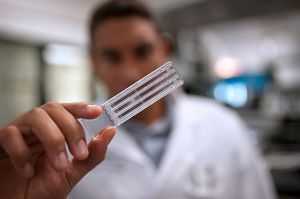
... crab-derived LAL reagent is the most sensitive and reliable method available for bacterial endotoxin testing, the progression of kinetic chromogenic technology has allowed us to make improvements by fusing it into Endosafe® LAL ...
Charles River Laboratories

The animal-free Endosafe® Trillium™ rCR cartridges are fueled by our optimized kinetic chromogenic reagent curated to simulate the natural LAL reaction, fully embracing the significance of sustainability, while accelerating ...
Charles River Laboratories

... products. Charles River's kinetic turbidimetric assay reagents (KTA and KTA2) allow optimized testing with a single FDA-licensed product that performs both kinetic and gel-clot analysis. With reagents ...
Charles River Laboratories

... RNeasy spin columns or 96-well plates. Tissue samples can be conveniently stabilized using RNAprotect Tissue Reagent or Allprotect Tissue Reagent, and efficiently disrupted using a TissueRuptor II or ...
QIAGEN
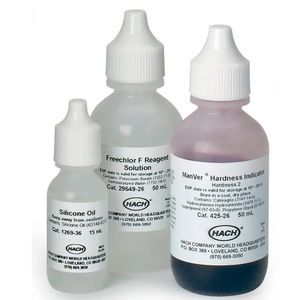
Multi-purpose sodium hydroxide solution for pH adjustment. 50 mL Self-Contained Dropping Bottle Specifications Concentration:5.0 N Number of tests:50 Platform:Solution Volume:50 mL
HACH LANGE Europe
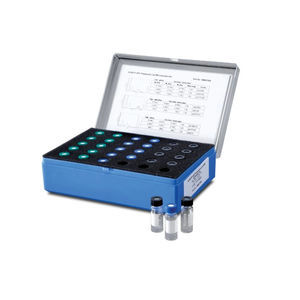
Eliminate manual preparation of custom standard calibration mixes with ACQUITY Advanced Polymer Chromatography (APC) Calibration Standards, which provide the right number of data points for your targeted molecular weight (MW) range. ACQUITY ...
Waters Ges.m.b.H
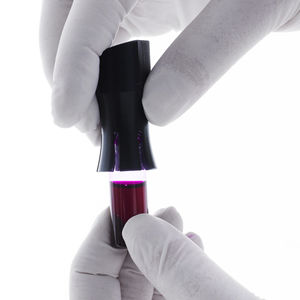
Automate and simplify QC procedures for acute care diagnostics and support regulatory compliance The QUALICHECK+ QC ampoules are specifically designed for Radiometer’s blood gas analyzers. Each QUALICHECK+ system consists of four or ...
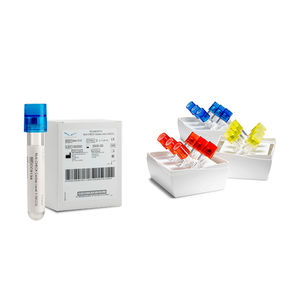
Helping to ensure accurate test results and analyzer performance AQT90 FLEX analyzer Liquid quality control (LQC) with Multi-CHECK The quality control system in the AQT90 FLEX analyzer consists of three parts: built-in quality control, ...
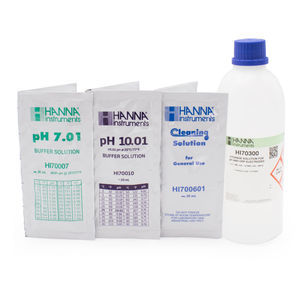
The HI5710-11PS General Calibration Bundle is great for customers who value field calibration and, more importantly, fresh buffers. This bundle has the added value of being able to ensure fresh buffer every time they calibrate for accurate ...
HANNA Instruments
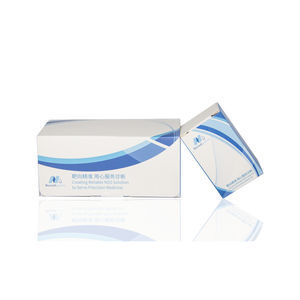
NadPrep DNA Library Preparation Module v2 is designed for the preparation of high-quality libraries from double-stranded DNA (dsDNA) on Illumina® & MGI platforms. This A-T ligation-based kit offers a stable and efficient library preparation ...
Nanodigmbio
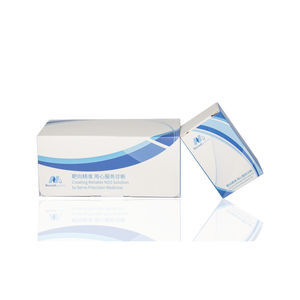
NadPrep RNA & DNA Library Co-Preparation Module is developed for high-throughput sequencing platforms, enabling a single process for RNA & DNA co-preparation from mixed pathogenic microbial samples. This module consist of 1st Strand Synthesis, ...
Nanodigmbio
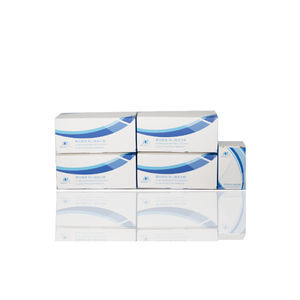
NadPrep EZ DNA Library Preparation Kit v2 is designed for preparation of high-quality sequencing libraries from double-stranded DNA (dsDNA) on MGI and Illumina platforms. To simplify the experimental process, multiple processes were applied ...
Nanodigmbio

... carrier RNA required No time-consuming ultracentrifugation, filtration nor special syringes required No precipitation reagents nor overnight incubation required Pure exosomes are purified and are free-from any ...
Norgen Biotek

Intended Use This reagent is intended for in vitro quantitative determination of microalbumin in human urine -Nephelometry methodology -Linear up to 200 mg/L -Ready to use reagents -No need to dilute ...
Agappe Diagnostics Switzerland GmbH

Intended Use This reagent is intended for in vitro quantitative determination of HbA1c in human blood. -Nephelometry methodology -Direct result in % HbA1c from analyzer -No total Hb determination required -No calibration ...
Agappe Diagnostics Switzerland GmbH

Intended Use The reagent is intended for in vitro quantitative determination of Ferritin in serum -Nephelometry methodology -Linear up to 1000 ng/mL -No calibration required -Lower detection limit of 1ng/mL Clinical Significance Ferritin ...
Agappe Diagnostics Switzerland GmbH
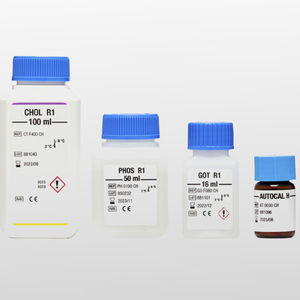
The quality of reagents is an essential factor in biochemical analysis. Thus, Balio Diagnostics has selected a complete range of parameters from specialized and quality partners. Parameters Biochemistry : reagents Adenosine ...
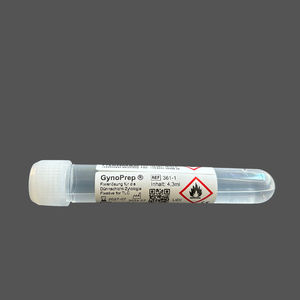

FineFIX is a patented formalin-free and water-based concentrate fixative. When diluted with ethanol, its formulation of low toxicity additives overcomes the drawbacks commonly associated with the use of pure ethanol or ethanol-based fixatives ...
MILESTONE

Formalin is a fixation solution suitable for the preparation of histological specimens. It consists of 40% formaldehyde (4% w/w), diluted in distilled water at a 1/10 ratio and buffered to a pH of 7. As a fixative, Formalin provides the ...
MILESTONE

FormalinB is a fixation solution suitable for the preparation of histological specimens. It consists of 40% formaldehyde (4% w/w), diluted in distilled water at a 1/10 ratio and buffered to a pH 7.2-7.4. This pH allows a faster fixation ...
MILESTONE
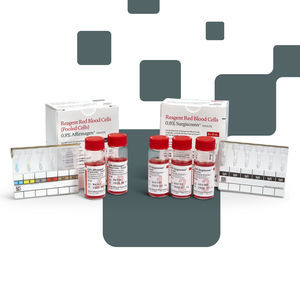
... and effective. Reagent Red Blood Cells As the largest manufacturer of reagent red blood cells in the world, we offer labs a full line of reagent red blood cells that are accurate, ...

Storage temperature: 2 °C - 8 °C
RPMI-1640 Medium has since been found suitable for a variety of mammalian cells, including HeLa, Jurkat, MCF-7, PC12, PBMC, astrocytes, and hybridomas. RPMI-1640 Medium requires supplementation, commonly with 10% Fetal Bovine Serum (FBS). Product ...
Dakewe (Shenzhen) Medical Equipment Co., Ltd.

Storage temperature: 2 °C - 8 °C
The density of mononuclear cells (lymphocytes and monocytes) in peripheral blood is between 1.075-1.090g/ml, which is different from that of red blood cells, multinuclear leucocytes and platelets.The densities of red blood cells and granulocytes ...
Dakewe (Shenzhen) Medical Equipment Co., Ltd.

Storage temperature: 4 °C - 25 °C
Human Lymphocyte Separation Medium is a sterile, endotoxin tested and ready-to-use solution. This product contains polysucrose, which accelerates erythrocyte precipitation, helps to improve the separation result of lymphocytes. The lymphocytes ...
Dakewe (Shenzhen) Medical Equipment Co., Ltd.

A1801-HR BENCHMARK AGAROSE HR (HIGH RESOLUTION - PCR GRADE) 100G High resolution separation of fragments 20 to 800 bp Ideal for resolving PCR products and anaylsis of STRs and AFLPs Manufactured without the use of organic solvents Benchmark’s ...
BENCHMARK SCIENTIFIC

BENCHMARK AGAROSE LE Multi-purpose, high purity Green Choice, free from organic solvents Enhanced resolution and clarity Low EEO / increase electrophoretic mobility RNase, DNase and Protease free Benchmark Agarose LE is a highly ...
BENCHMARK SCIENTIFIC

Convenient cDNA synthesis and PCR in a single tube from 1pg total RNA Formulated for highly specific and sensitive RT-PCR from any RNA templates Incorporates thermostable reverse transcriptase and Hot-Start Taq for preparation ...
BENCHMARK SCIENTIFIC
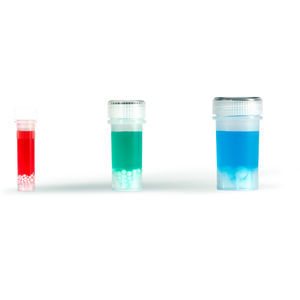
The Precellys lysing kits are dedicated to sample preparation for Precellys tissue homogenizers. They gather high quality material (glass, ceramic or stainless steel) and Dnase/Rnase free certification. Optimize tissue lysis with the ...
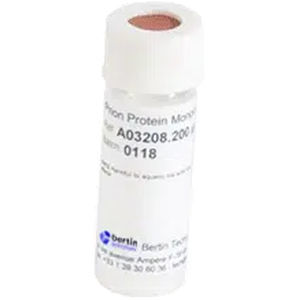
Bertin Bioreagent offers primary and secondary antibodies for laboratories. As essential tools, they are particularly versatile when properly validated. Bertin Bioreagent offers a broad range of primary and secondary antibodies that ...
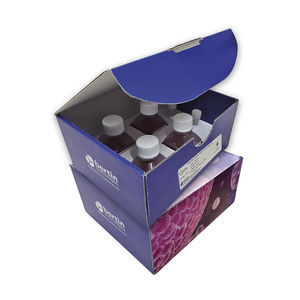
Bertin Technologies specially developed a multi-tissue dissociation kit for its Precellys Evolution homogenizers. Optimize tissue dissociation The Precellys Multi-Tissue Dissociation Kit developed by Bertin Technologies is an innovative ...
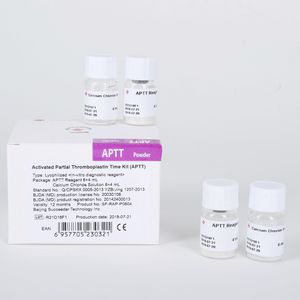
... Draft writer of China National D-Dimer standard “27 YYT 1240-2014, China National Pharmaceutical industry standard of D-Dimer reagent (kit)”. 3.Consists as Hemostasis solution with Succeeder coagulation instrument, ...
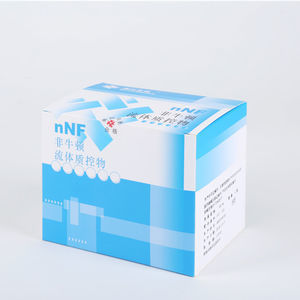
1.Consists of Non-Newtonian fluid control, Newtonian fluid control, Clean solution. 2.Non-Newtonian fluid control with China National CFDA certification ensures traceability. 3.Succeeder Blood Rheology solution consists with instrument, ...
Your suggestions for improvement:
Subscribe to our newsletter
Receive monthly updates on this section.
Please refer to our Privacy Policy for details on how MedicalExpo processes your personal data.
- Brand list
- Manufacturer account
- Buyer account
- Our services
- Newsletter subscription
- About VirtualExpo Group



























Please specify:
Help us improve:
remaining